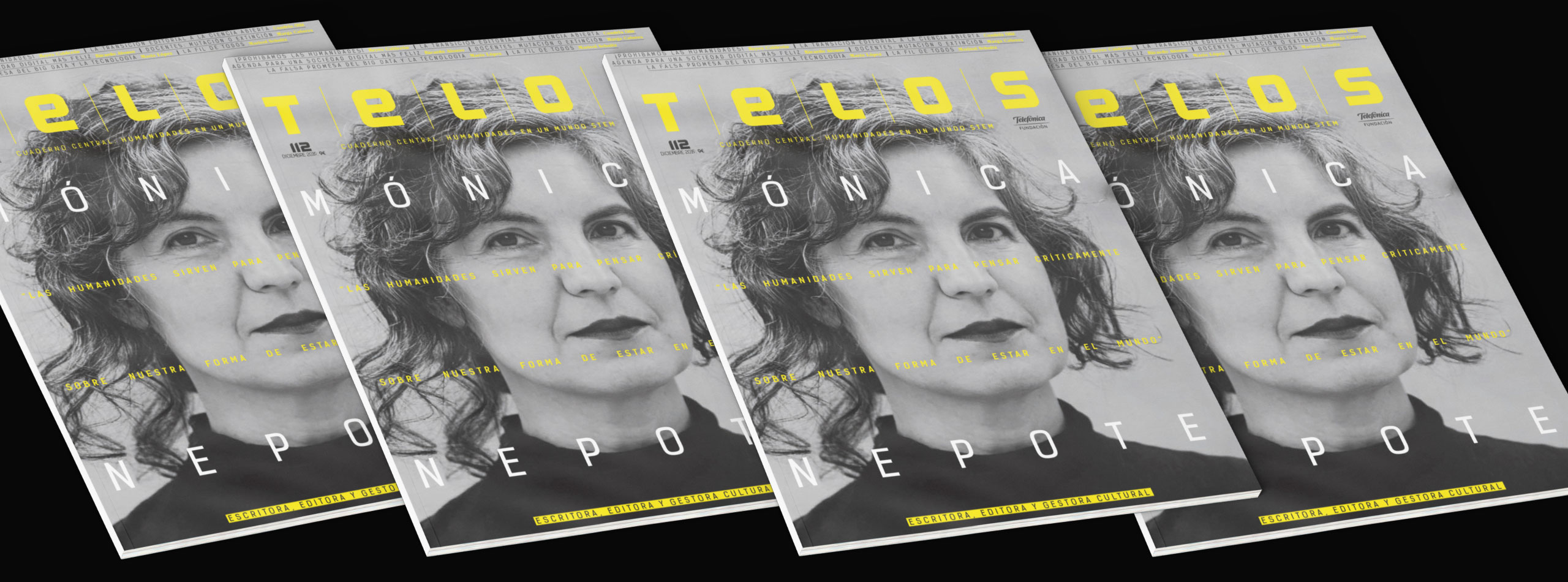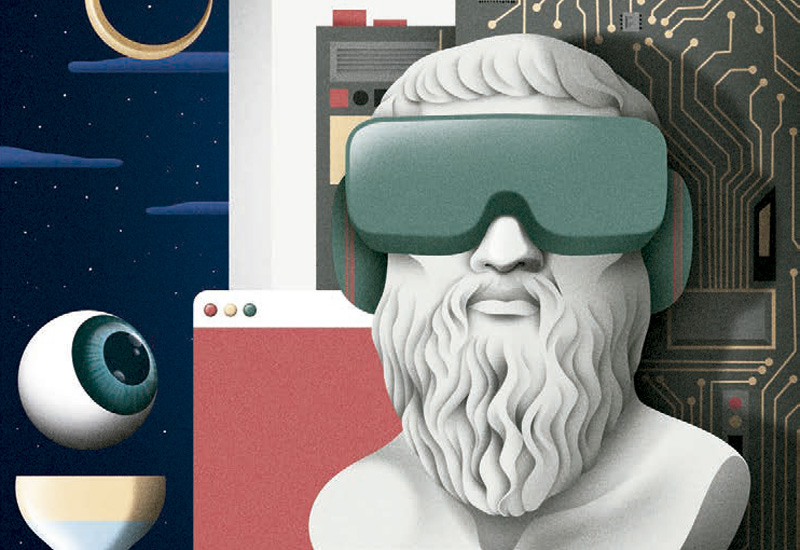05.12.2019
Telos 112. Humanities in the STEM world
This issue of the Telos Magazine (free download) focuses on the definition and the scope of what has become known as the Digital Humanities. You can see the complete presentation online.
Telos 112. Humanities in the STEM world

#Telos112
ON YOUTUBE | TELOS WEBSITE | DOWNLOAD THE MAGAZINE
The impact of technological and scientific progress requires that we rethink what it is to be human. On Thursday, January 16, 2020, at Espacio Fundación Telefónica Madrid, we analyzed the role that the Humanities play at a time such as the one we are currently experiencing, marked by immediacy and constant change.
The presentation went like this:
Telos 112. Humanities in the STEM world
We aimed to open a debate and reflection aware that the Humanities are facing a cultural paradigm marked by the constant incorporation of technology.
The session was moderated by the director of the Telos Magazine and lecturer in Journalism at the UC3M, Juan M. Zafra. The writer, editor and cultural manager Mónica Nepote, who appeared on the cover of issue 112, Ricardo Alonso Maturana, founder and director of GNOSS, a company dedicated to the development of Artificial Intelligence; and Rodrigo García Fernández, deputy-director of Cultural Cooperation of the Centro Cultural de España (Spanish Culture Center) in Mexico, all participated in the session. Rodrigo García Fernández is a specialist in the design and management of processes and projects for cultural development and was previously the director of the Fábrica de Artes y Oficios (Arts and Trades Building) in Milpa Alta.
At the end of the day we presented issue 112 of the magazine.
More about the magazine
The debate proposed in issue 112 of Telos is related with the actual essence of what the Humanities have traditionally been considered to be, with their contents, their methods, their objectives and even their usefulness, in a world that seems to be dominated by the result, the data, the mathematics, the engineering, the technology and the science.
In this issue we consider the role played by philosophy, philology, history, geography, law, political science, psychology, anthropology, sociology, visual arts, performing arts, music, esthetics, art theory, communication sciences, economics, ethics, religion, as well as other disciplines, at a time such as the one in which we live, marked by immediacy, constant change, mutations, etc.
The writer, editor and cultural manager Mónica Nepote, director of e-literatura at the Centro de Cultura Digital de CDMX [Digital Culture Center of Mexico City], is on the main cover. A clear example of the artist who recognizes, studies and employs technology to expand human creativity. ‘I find it very difficult to tell the difference between what is virtual and what is real’ says Mónica Nepote during the interview.
The issue is complete with signatures of the like of Reyes Calderón as ‘Guest Author’, the article that opens the issue. In ‘Communication Matters’, Canbdela Ollé talks about ‘The editorial transition to open science: Academic magazines and the S Plan’; and José Antonio Muñiz and Almudena Alonso discuss ‘Public relations, the value of a profession with values’.
In the ‘Analysis’ section Marga Cabrera, José Luis Poza and Nuria Lloret publish ‘Teachers: mutation or extinction’; Ricardo Alonso discusses the ‘Agenda for a happier digital society’; María López tackles ‘The false promise of big data and technology’; David Bonilla, ‘The company our children will work in’; and, finally, Carlos Colina, ‘The transhumanist and feminist cyborg’.
Experiencias travels to Mexico, where the director of FIL [International Book Fair of Guadalajara], Marisol Schultz, tells us of the history of the most popular Spanish language book fair. Luis Martín closes the section with his ‘Inventors Academy’.
Speakers:
– Mónica Nepote (@neponita, on Twitter). She is a writer and an editor; she considers both practices as a challenge and takes questions regarding formats and supports. She is currently exploring the relationship between the body, book, text and voice through editing, writing and performance. She is responsible for the E-literature Project, at the Digital Culture Center, where she promotes and researches the digital culture and electronic literature; the political, social and cultural implications of the uses of technologies in everyday life, in the emotional and creative sense.
– Ricardo Alonso Maturana (@maturanaricardo, on Twitter). Graduate in Philosophy from the University of Deusto and PhD in Sociology from UNED. He is the founder and director of GNOSS, a technological company in Logroño dedicated to the development of Artificial Intelligence.
– Juan M. Zafra (@prensa14, on Twitter). Director of the Telos Magazine/Fundación Telefónica. Lecturer of Journalism at University Carlos III. He has worked in the media at the Spanish newspaper El País and Radio Nacional de España [Spanish National Radio] and founded the digital newspaper bez.es. He was an advisor to the Secretary of State for Communication of the Government of Spain and head of communication of the Plan Avanza for the promotion of the information society. Telos, edited by Fundación Telefónica since 1985, is a leader in the areas of thought, science, technology, and society.
– Rodrigo García Fernández (@GarciaGarfaroma, on Twitter). Deputy director for Cultural Cooperation at the Centro Cultural de España in Mexico. He is a specialist in the design and management of processes and projects for cultural development and was previously the director of the Fábrica de Artes y Oficios of Milpa Alta.
